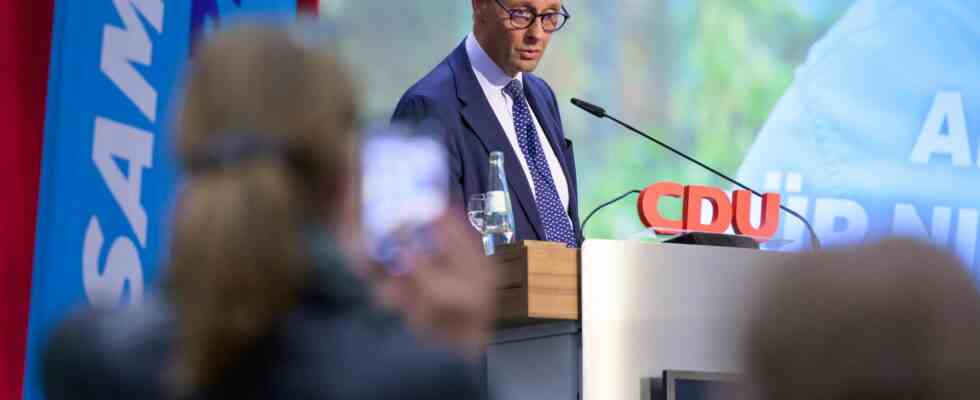analysis
Status: 07.10.2022 10:10 a.m
A year ago, the CDU was voted out in the general election. Merz should set up the party again. Successes in state elections have an invigorating effect. A victory in Lower Saxony would be just right for Merz.
It didn’t start well for the newly elected CDU leader Friedrich Merz: Two months in office, the first state election in March brought the CDU in Saarland a crushing defeat. It slipped from 40.7 percent to 28.5 percent. Prime Minister Tobias Hans was elected from office. The morning after, party leader Merz announced the motto for the forthcoming elections in Berlin: “We’re not running a short distance here, we’re running a marathon.”
After the debacle in Saarland, hopes rested on Daniel Günther in Schleswig-Holstein. He won. Just like a week later Hendrik Wüst in North Rhine-Westphalia. According to the findings of election research, these successes had a lot to do with the heads on the ground and less to do with the party leadership in Berlin. Especially since Günther in particular has never been considered an ardent Merz supporter. In the Konrad-Adenauer-Haus, Secretary General Mario Czaja nevertheless interpreted: A positive result in the federal states also gives Merz tailwind.
Merz and the women’s quota
In the summer, the CDU was in the midst of reorganizing its content. He wanted to make the party more modern and feminine, Merz had promised when he took office. Only late did the party leader decide to propose a temporary women’s quota for the party. His motto was always: if we can’t think of anything better.
The many, mostly young, opponents of the women’s quota came up with a lot at the party conference in Hanover, they fought passionately against it, but they couldn’t turn the mood. Merz’s proposal got a majority, albeit not an overwhelming one. If the women’s quota had failed, Merz would also have been scratched.
Merz did not succeed in uniting all wings in the CDU with the women’s quota. Above all, the Conservatives and the Junge Union felt disappointed by their chairman, whom they had helped to elect into office. So how to involve the disappointed? Shortly thereafter, Merz spoke of “social tourism” in a “Bild” interview with a view to the increasing number of refugees from Ukraine. They traveled “to Germany, back to Ukraine, to Germany, back to Ukraine,” said Merz. That was a turn too many even for many party members. The CDU leader rowed back the next day. If he hurt someone, he’s sorry. Days later he followed up and accused the traffic light government of providing “wrong incentives” with social benefits for refugees.
As a campaigner in Lower Saxony
An electoral success for the CDU in Lower Saxony would be the perfect end to the election year for Merz. Even if the SPD around Prime Minister Stephan Weil is ahead in the polls, CDU challenger Bernd Althusmann is not without a chance. Merz has completed numerous election campaign dates in the past few days. A second vote for the CDU in Lower Saxony is also a second vote for the CDU throughout Germany. Merz always keeps an eye on the federal CDU in state elections.
In the most recent DeutschlandTrend, the CDU is still well ahead of the chancellor party SPD. Satisfaction with the traffic light government fell to a new low, and many of its ministers also lost popularity. However, Friedrich Merz was also unable to increase his values.

